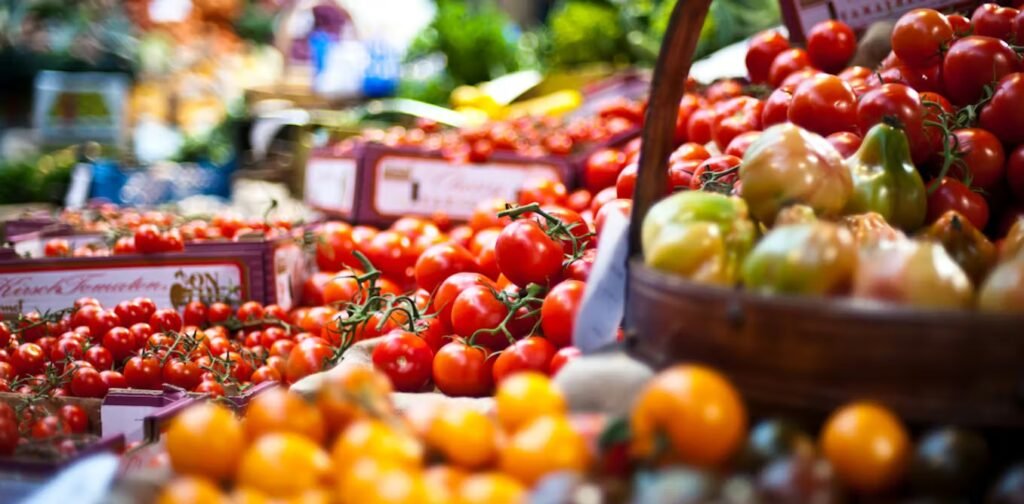Africa is the world’s most endowed continent in agricultural potential, yet it remains a marginal player in global agribusiness. This paradox lies at the heart of Africa’s development challenge.
Africa’s land accounts for nearly half of the global total. Most of it can be used for growing crops. It is also largely unprotected, and not forested, with low population density. The continent’s climate supports the growth of 80% of the foods consumed globally. Economic theory would predict that these conditions would lead to strong export performance. Yet Africa’s share of global agricultural exports is the lowest worldwide. It fell from about 8% in 1960 to 4% in the early 2020s, according to World Bank data.
Policymakers have largely neglected agribusiness export performance, with a few exceptions, such as Kenya and Ghana. Agribusiness refers to the entire range of activities in producing, processing, distributing and marketing agricultural products.
Despite being the largest contributor to GDP and employment, agribusiness receives a disproportionately small share of government spending (on average 4%), far below its economic significance. There are variations across the continent, ranging from 8% and 7% respectively in Mali and South Sudan to less than 3% in Kenya and Ghana. Many governments have instead chosen manufacturing as the pathway to global integration.
Based on insights from over three decades of research, consulting and teaching on global markets and development, I argue that agriculture could lead Africa’s integration into the world economy. Four reforms would be necessary: improving access to capital; documenting land; designing targeted cross-border policies; and strategically employing trade policy.
In these ways, Africa could use its natural assets to secure broad-based economic growth and a stronger position in global value chains.
Four reforms to support agribusiness
1. Improve access to capital
Capital scarcity remains the most serious constraint on African agribusiness. Financial institutions are reluctant to lend due to high risk, long investment horizons, poor collateral, and profits being vulnerable to price shocks. The World Bank estimates that agriculture receives only about 1% of commercial lending despite contributing 25%-40% of GDP (up to 6% in Nigeria and Ethiopia). Lending rates are often double the economy-wide average, as UN Food and Agriculture Organization data show for Uganda.
Governments can help close this financing gap. In 2024, Kenya allocated US$7.7 million for developing its tea production. Domestic investment can generate savings by cutting food import bills. Nigeria’s Tomato Jos project, for instance, reduced annual tomato paste imports by US$360 million.
Governments should expand public lending while also enabling private sector participation through risk-sharing mechanisms. South Africa’s Khula Credit Guarantee Scheme illustrates how government-backed guarantees can unlock finance for collateral-poor farmers. This model has been reproduced in Kenya and Tanzania with EU and development bank support.
Private finance sources such as venture capital have also grown rapidly. In 2024, Nigeria and South Africa each attracted about US$500 million in venture funding. Funded African startups have grown six times faster than the global average. Micro-lending platforms now exceed US$8.5 billion in loans.
2. Document the land
Over 80% of Africa’s arable land is undocumented and governed by customary tenure systems poorly integrated into formal law. Weak land administration deters investment and limits land’s use as collateral. Transfers cost twice as much and take twice as long as in OECD countries (the world’s 38 most developed countries). That constrains access to credit and economies of scale needed for exports.
Several land tenure reforms introduced in the last decade demonstrate the benefits of formalisation. Ethiopia issued certificates to 20 million smallholders, boosting rental activity. Malawi’s redistribution of 15,000 hectares raised household incomes by 40%. In Mozambique, Uganda and Liberia, governments legally recognised customary institutions to facilitate formal land contracts. Rwanda’s comprehensive land mapping further improved transparency and investment incentives.
3. Design focused cross-border policies
Regional and global markets need different strategies for export success. Intra-African trade benefits from proximity and regulatory harmonisation. The East African Community’s trade facilitation measures increased intra-regional dairy exports 65-fold within a decade.
Most African agricultural exports, however, go to non-African markets, requiring infrastructure and logistics investments to ensure speed and quality. Senegal increased exports by 20% annually after investing in high-speed shipping, while Ethiopia’s flower growing boom owes much to its air transport and cold-chain systems.
Policies must also be crop specific. Kenya’s targeted avocado export strategy transformed it into Africa’s largest exporter, with double-digit annual growth. Mali’s mango export policy built a competitive value chain serving European markets.
4. Use trade policy as a tool for upgrading
African exporters primarily sell raw, low-value materials. Nigeria, a top tomato producer, exports nearly all production unprocessed – and imports paste. Less than 5% of Kenyan tea, the nation’s leading export, is branded. Trade policy can reverse this imbalance by encouraging domestic processing.
The East African Community’s differentiated tariff structure successfully encouraged value addition by lowering duties on intermediate goods while protecting local food processing. Governments could similarly tax or restrict unprocessed exports to motivate upgrading. At the same time, it’s necessary to invest in processing capacity. Several countries, including Botswana, Uganda and Côte d’Ivoire, have attempted raw export bans with limited success because the enabling conditions are missing.
A decisive shift
Africa’s agribusiness sector embodies the continent’s untapped potential for structural transformation. With abundant land, favourable climate and rapidly growing domestic demand, Africa possesses clear comparative advantages. Africa is also becoming more capable of addressing the challenges that have arrested the development of the agribusiness sector in the past. This article develops a policy agenda designed to reverse Africa’s declining share of world agricultural trade by amending institutional failures that have constrained competitiveness.
This agenda is based on enhancing access to finance, formalising land rights, implementing targeted cross-border initiatives, and using trade policy for upgrading. A decisive policy shift towards an agriculture-led development agenda is essential. Implementing this agenda will enable African countries to improve their economic position at home and in the world.

